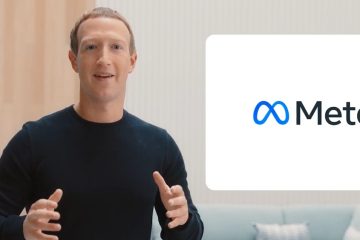Google and fate of the $600 billion digital advertising industry

The fate of the $600 billion digital advertising industry hinges on a few key statements from Google. Google has ceased its attempts to delete tracking cookies in its Chrome browser, nevertheless, the snippets of code that have supported the profitable digital-advertising industry for many years may yet vanish. Google will delegate the task of eliminating cookies to the consumer, rather than doing it themselves. Based on historical evidence, individuals may indeed take such action.
U.K. regulators supervising the process have stated that Google intends to include a prompt in Chrome, giving users the choice to either accept or decline cookies. The change in strategy came after a four-year endeavor to phase out and substitute the tracking technology, a procedure hindered by delays and resistance from the advertising sector. Online publishers and ad-tech companies are eager to learn the specifics of how Google’s user-choice prompt will function. The specific phrasing and timing will have a significant impact on the number of people who choose to participate and the amount of data that the sector receives.
The advertising sector is apprehensive that the Alphabet company may implement a strongly worded prompt resembling the “Ask App Not to Track” phrase introduced by Apple in 2021 as part of its privacy initiative, which had a detrimental impact on many digital advertising businesses. The Apple popup inquires whether the user grants permission to the app owner to monitor their activities on other companies’ apps and websites. Approximately 74% of the time that U.S. users come across the wording, they choose to opt out of tracking, as reported by mobile-analytics firm Adjust.
Google Chrome is the predominant online browser globally and the sole prominent browser that continues to uphold cookie functionality. According to Insider Intelligence, this is crucial for the worldwide digital advertising sector, which is projected to generate $677 billion in yearly expenditure this year. Mobile-marketing analyst and venture entrepreneur Eric Seufert suggested that by combining an opt-out mechanism with a warning prompt, cookies may be eliminated under the pretense of user choice.
Alternative methodologies have yielded diverse results. In 2020, when California mandated that websites provide users with the option to prevent the sale of their data, numerous publishers complied by adding a hyperlink at the bottom of their home page that stated “Do Not Sell or Share My Personal Information”. According to huge publications, less than 1% of site visitors clicked on it.
Rajeev Goel, the CEO of ad tech startup PubMatic, expressed the expectation that Google will take into account the knowledge and difficulties gained from earlier endeavors, such as those undertaken by Apple, according to the advertising business. “As the industry strives to facilitate user choice and safeguard privacy, it is crucial to ensure that the solutions preserve the economic framework that sustains a free and unrestricted internet,” stated Goel. If a significant number of Chrome users choose to disable cookies, this would have significant consequences for ad-tech businesses and online publishers that do not have access to consumer data. Apple’s implementation of its tracking prompt resulted in a significant loss of $10 billion in income for Facebook in the year 2022. Goel stated that his company would experience minimal impact as advertisers are expected to reallocate funds to alternative sectors, such as streaming and retail media, which provide targeted advertising. PubMatic has been actively expanding its business in these sectors.
According to the meeting minutes accessed by The Wall Street Journal, Google executive Alex Cone stated during a conference call with ad-tech leaders on Wednesday that Google has not yet determined the specific phrasing and timeline for implementing the new option.
According to the document, Cone informed the delegates that Google will continue to create and test its “Privacy Sandbox,” which is a collection of alternative technologies to replace cookies.
A representative from Google refrained from providing further comments, referring to the company’s recent blog post that mentioned their intention to investigate a strategy that prioritizes user choice.
The cookies in question are small snippets of code that record the online behavior of internet users across many websites. This information is then utilized by marketers to deliver tailored advertisements and evaluate their impact. First-party cookies, also referred to as other types of cookies, gather fundamental information such as login credentials for particular websites.
According to estimates from ad-tech startup Index Exchange, just approximately 8% of Chrome users choose to opt out of cookies, even though they have the option to do so. In order to select this choice, users must locate it inside their browser options.
The antitrust authority in the U.K., responsible for monitoring Google’s rules on cookies, has stated that it will thoroughly evaluate the company’s new strategy and seek input from the industry. Google has consented to collaborate with the regulator regarding any modifications and has committed to implementing them on a global scale.
Anthony Katsur, the CEO of IAB Tech Lab, a trade body for ad-tech, expressed the possibility of a future when cookies become obsolete due to customers choosing to opt out.
Ad-tech executives are interested in knowing if Google will provide an equally simple option to opt out of allowing Google to gather data on users’ online searches or YouTube viewing. According to them, if this change does not happen, it could be advantageous for Google.
Jeff Green, the CEO of ad-tech business The Trade Desk, a competitor of Google, expressed the difficulty in anticipating Google’s future actions. “They find themselves in a dilemma as they attempt to support the importance of privacy while also making money from their owned content like YouTube, all while trying to satisfy regulatory authorities.”
Google has made a commitment to the U.K. regulator, the Competition and Markets Authority, that it will not show any favoritism towards its own products. The CMA did not provide a response to the request for comment.
Web publishers have made significant investments in systems and tactics to gather client information in anticipation of the discontinuation of cookies.
According to Matt Prohaska, CEO of Prohaska Consulting, web publishers and businesses that significantly depend on advertising revenue have the highest stakes. They are attempting to assess the effect on their business if Google were to use prompts similar to those used by Apple.
“There is a great deal of frustration regarding the time, money, and energy invested in creating something for a new world that will now undergo further changes,” Prohaska remarked.










